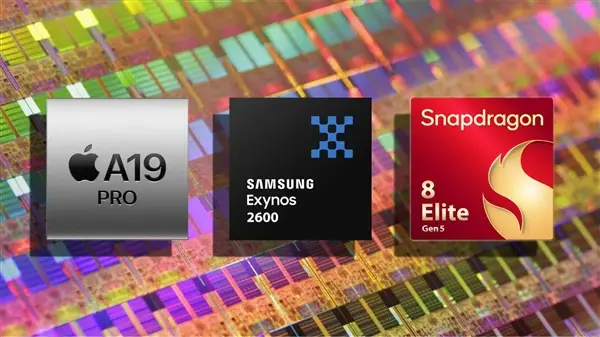Latest Geekbench scores show that the A19 Pro chip in the iPhone 17 Pro achieved a single-core score of 3895 and a multi-core score of 9746, making it one of the most powerful smartphones ever. By comparison, the iPhone 16 Pro, equipped with the A18 Pro chip, averaged a single-core score of 3447 and a multi-core score of 8576.

The iPhone 17 Pro's A19 Pro leads in single-core performance by 13% and in multi-core performance by 14%. Notably, its single-core performance surpasses that of the Apple M4 MacBook Pro (approximately 3829 points). However, its multi-core performance lags behind Samsung's customized Snapdragon 8 Elite Gen 5 (downclocked version) and the Exynos 2600, sparking concern.
According to Wccftech, since the A19 Pro chip still uses TSMC's 3nm process (third generation), while the A18 Pro already uses second-generation 3nm technology, the A19 Pro hasn't seen revolutionary efficiency improvements. Its single-core scores are 3895 and its multi-core scores are 9746, which are quite impressive for a flagship chip.
A19 Pro: Single-core 3895, Multi-core 9746
Snapdragon 8 Elite Gen 5 (underclocked version, core frequency 4GHz, not the default 4.74GHz): Single-core 3393, Multi-core 11515
Exynos 2600: Single-core 3309, Multi-core 11256
The underclocked Snapdragon 8 Elite Gen 5 beat the A19 Pro chip in the multi-core test, leading by 18.2%, but fell behind in the single-core test, running 12.9% slower. Furthermore, the Exynos 2600, which uses Samsung's 2nm process, leads the A19 Pro in multi-core performance by 15.5%, but lags behind the A19 Pro in single-core performance by approximately 15%.
Wccftech noted that these high multi-core scores were achieved by increasing the number of cores. While Apple maintains a 6-core configuration, the Snapdragon 8 Elite Gen 5 and Exynos 2600 employ 8-core and 10-core CPU architectures, respectively, achieving these performance figures.




